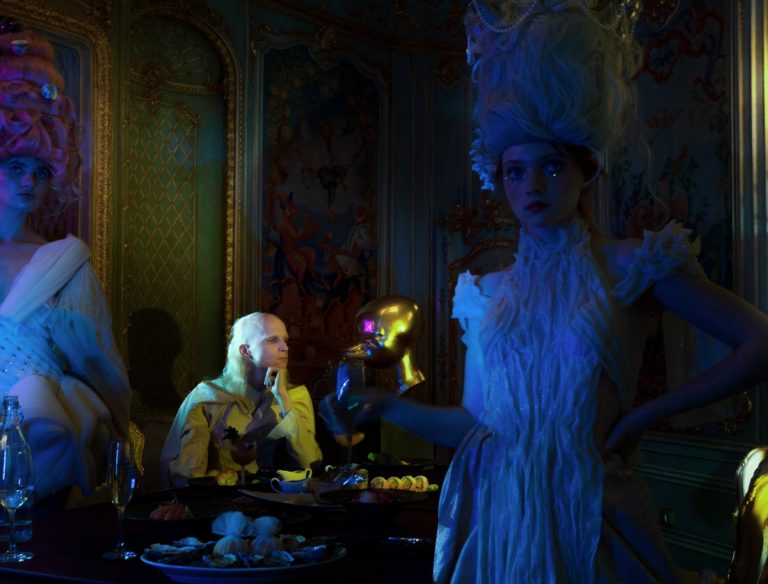Liberty Pass might be the app to bring back real life clubbing for 2021
Are you as ready as I am to get back into a hot, crowded and loud music venue? Because there’s an app for that, and it might just be what sets the music industry, and us, free. The app, called Liberty Pass has the potential to allow users to come and go from venues for over 72 hours at a time—it is essentially a passport for COVID-free partying. Yes please. Here’s everything you need to know about the app and the potential changes it may bring along.
The global pandemic forced clubs and live music venues across the world to close their doors indefinitely, which tragically led some to shut theirs for good. Festivals and large events were either cancelled or indefinitely postponed, but for the positive minds out there, indefinitely does not mean forever, and thanks to technology’s ever adapting and helpful hand, we may soon all get the chance to go out clubbing again. Liberty Pass was announced on 30 November at the virtual edition of the annual International Nightlife Congress, which is an organisation committed to promoting nightlife entrepreneurship and its positive impact on society. How does the app work exactly?
How does the Liberty Pass app work?
The app aims to collect official information from collaborating medical centres in regards to antigen tests, PCR tests and vaccines, when they become available. Then, Liberty Pass will update its users’ profiles with a QR code tied to an individual with a green tick if their tests are negative. That beautiful green tick will grant those lucky individuals access to particular venues or events, and their results will remain active for 72 hours at a time. In other words, we will be able to enjoy a full 72 hours raving like never before—if that’s what you’re into. All good things must come to an end however, your QR code will expire, and you will have to produce another negative test in order to do it all over again the next weekend. If you have been vaccinated against COVID-19, that 72 hours will be extended until your vaccine needs topping up.
Ocio de Ibiza, a Spanish association representing the interests of clubs, venues and nightlife on the island (Ibiza) initially announced the app. Joaquim Boadas, the International Nightlife Association’s secretary general spoke to DJ Mag regarding Ibiza more specifically rather than a global audience, and said that Liberty Pass would be used in addition to other safety measures such as hand sanitising and mask wearing. The app will apparently also be used to keep a registry of which events are attended by what visitor to the island, giving facilitators the ability to track and trace when necessary.
I can already imagine what some of you are thinking. Yes, a user could become infected with the virus within the 72 hours of sweet freedom, but Spain Nightlife has sought medical evidence to prove that it takes more than 72 hours for the person to become contagious, meaning, the virus wouldn’t spread while the QR code is green.
If you don’t live or have any intention of visiting Spain, do not fret, because the Liberty Pass app can and will be adapted depending on the countries that decide to adopt it and their own rules. It will also combat fraud as a bonus by requiring users to show ID alongside their QR code (which is associated with an individual name) upon entry.
It is not clear as to whether the Spanish government will give the go ahead to the potential solution becoming a reality in the very near future, but an agreement has been made with the Spanish Nightlife association already and providing that approvals are met, Liberty Pass has the potential to be used as soon as 2021. In places like the UK, there are no plans to adopt similar types of technology as of yet but the country, as well as the rest of the world, may likely be influenced by the idea.
Meanwhile, Michael Gove, UK Minister for the Cabinet Office told Sky News that he did “not plan to introduce any vaccine passports and I do not know anyone else in the government who is planning it,” even after experts warned that nightclubs in particular face extinction due to the COVID-19 pandemic.
Michael Kill, CEO of the Night Time Industries Association (NTIA), spoke to Dazed and said that “The failure in many ways has been (the exclusion of nightlife) from the narrative, as well as the lack of economic and cultural recognition and value, robust financial support packages for businesses, and an exit strategy or direction of travel.”
In the wake of closed venues and curfews, partygoers have subsequently flocked to illegal raves as well as protests around the UK, quite rightly. The music and nightlife industry in particular has suffered a significant lack of support in comparison to other hospitality venues such as restaurants, bars and hotels or even shops, and it doesn’t seem to fit into one of the UK’s newly implemented ‘tier’ systems at all, scotch egg on the side or not.
It is understandable that the traditional nature of these events is different from those that are seated between placemats, however, if adaptations are made to suit one tone of society, more must be made to suit them all. Kill suggests that we stay “tuned in” and keep on “engaging” with our favourite venues in order to support them. On top of that, I suggest that we all contribute to buying music from the artists directly, or buy some merchandise from charities that support musicians and venues, and donate to help if you can. But let’s be honest for a second. The best (and easiest) way to help the nightlife industry would be to go out and visit these venues safely. Liberty Pass took the first step forward, what will the UK government’s next move be?





